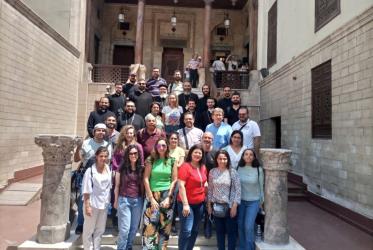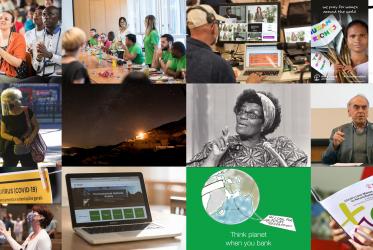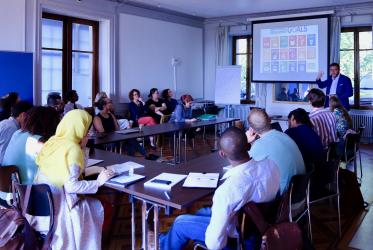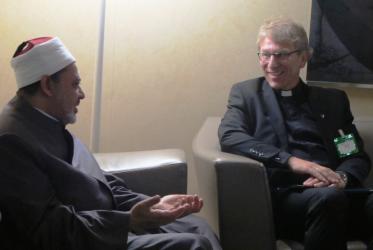Displaying 1 - 20 of 28
WCC welcomes new staff
06 November 2018
#WCC70: Nathan Söderblom, ecumenical pioneer
29 August 2018
Konrad Raiser shares ecumenical journey of transformation
06 February 2018
A safe space for sinners to change and for pain to be shared
03 August 2017
Christian and Muslim promote spiritual solidarity
14 June 2017
Dialogue flourishes between WCC, Muslim Council of Elders
30 September 2016
WCC conference explores ecological injustice in Uganda
21 April 2016

















